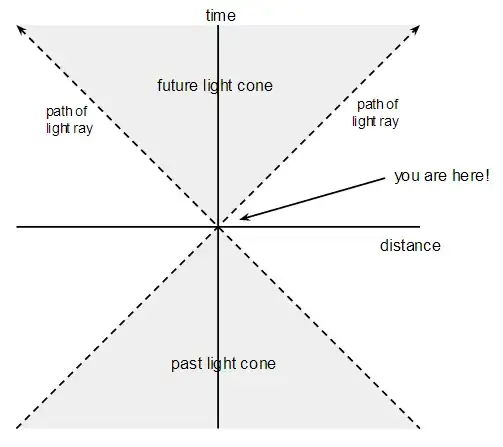Let me present a slightly different perspective to Luboš, though I'm saying basically the same thing. From our current location we can define an area of space called the future light cone. This is the region of spacetime that is connected to us by motion at less than or equal to the speed of light. If we draw a spacetime diagram then the lightcone looks like:

Anything that is within our future light cone will always stay within our future light cone. As an aside, this is why nothing can ever fall into a black hole in our coordinates because crossing the event horizon would take it outside our light cone. Instead we see the object freeze at the event horizon.
But back to the universe: your argument that:
an object can never be observed to move faster than light
is true for everything in our future light cone, but the bits of the universe that are moving faster than light relative to us, and that we will never see, were never in our (past) light cone. This basically because the Big Bang wasn't an explosion outwards from a single point (as misleadingly shown in most TV documentaries).
However, as Luboš says, if we wait long enough even the most distant galaxies will eventually enter our light cone. Well, probably. This is always true for a decelerating expansion, and is even true for accelerated expansion provided $\dot{a}$ increases more slowly than $a$. See the paper Expanding Confusion for the gory details.
